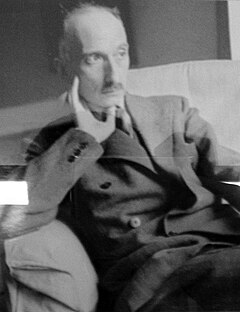User blogs

FRANCOIS MAURIAC – NOBEL LAUREATE IN LITERATURE
Nobel Prize: Francois Mauriac (1885–1970) was awarded the 1952 Nobel Prize in Literature “for the deep spiritual insight and the artistic intensity with which he has in his novels penetrated the drama of human life.”
Nationality: French
Education: Licence es Lettres (M.A. in Literature), University of Bordeaux, France, 1905
Occupation: Novelist, playwright, poet, and journalist
1. Francois Mauriac wrote in his book Anguish and Joy of the Christian Life (1931):
“Today, in the evening of my life, I know the final answer. It is Jesus Christ alone who quiets the radical anguish that is in us – an anguish which is so consubstantial with the human condition that it is cruelly manifest from childhood to the grave. The torment of loneliness, the vacillating shadows of those we love as they leave us in the horrible mysteries of death, the secret and permanent thirst we have for the limitless gratification of our ego.
Our hearts remain full of unseen idols until we are stretched on the wood of the Cross with Christ, until we cease trying to nourish ourselves and our desires, and give ourselves completely to the poor, to the needy, to the suffering members of Christ’s body throughout the world.” (Mauriac 1964, Notre Dame).
2. “God does not give Himself totally except to the person who has annihilated all things, everything, whatever is in himself and in the world that stands in the way of divine love.” (Mauriac 1964, 43, Notre Dame).
3. “The God of the Christians does not wish simply to be loved. He wishes to be the sole object of our love. He will not allow us to turn aside a single sigh from Him; all other love is to Him nothing but a form of idolatry unless it is expressed in His name. It is this demand that seems utterly unreasonable. For it is impossible to love a creature without deifying it; yet we are also obliged to love everyone and everything. The creature thus becomes a necessity usurping the place of God: the heaven of His presence, the hell of His absence.” (Mauriac 1964, 26; Section 1 ‘Anguish’, Dimension Books).
4. “Impurity separates us from God. The spiritual life obeys laws as verifiable as those of the physical world. Purity is the condition for a higher love – for a possession superior to all possessions: that of God. Yes, this is what is at stake, and nothing less.” (Mauriac 1963, 51-52).
5. In his book Life of Jesus (1936), Mauriac claimed: “If there is one part of the Christian message that people have rejected with incomparable obstinacy, it is faith in the equal worth of all souls and races before the Father who is in Heaven.” (Mauriac 1978).
6. “The majority of Christians never get beyond the letter of the catechism. They have had no knowledge of God. It is a word which, for them, has never had any real content. They deny, yet do not deny. Christ has never been in their lives.” (Mauriac 1970).
7. “We are therefore wrong to think of the mystics as exceptional Christians. On the contrary, they are the only real Christians. They wear themselves out in the pursuit of God, as sensualists do in the pursuit of the flesh. They unceasingly desire to possess Him; to be possessed by Him, to love Him. Here love is understood to mean embracing God with the whole heart, of giving oneself to Him completely and searching to be possessed wholly by Him in return.” (Mauriac 1964, 26-27, Dimension Books).
8. In Holy Thursday: An Intimate Remembrance (1931) Mauriac described the ethical aspects of the Christian faith: “One must first hate one’s sin, a prerequisite which, in certain cases, is very difficult to achieve. Next, we must resolve never to sin again – and this is not only a matter of words but an inner determination of which God is the only judge. Last, the fear of punishment does not suffice if it is not inspired by love of God. No one can be forgiven without a beginning of love.” (Mauriac 1999, Ch. 5).
